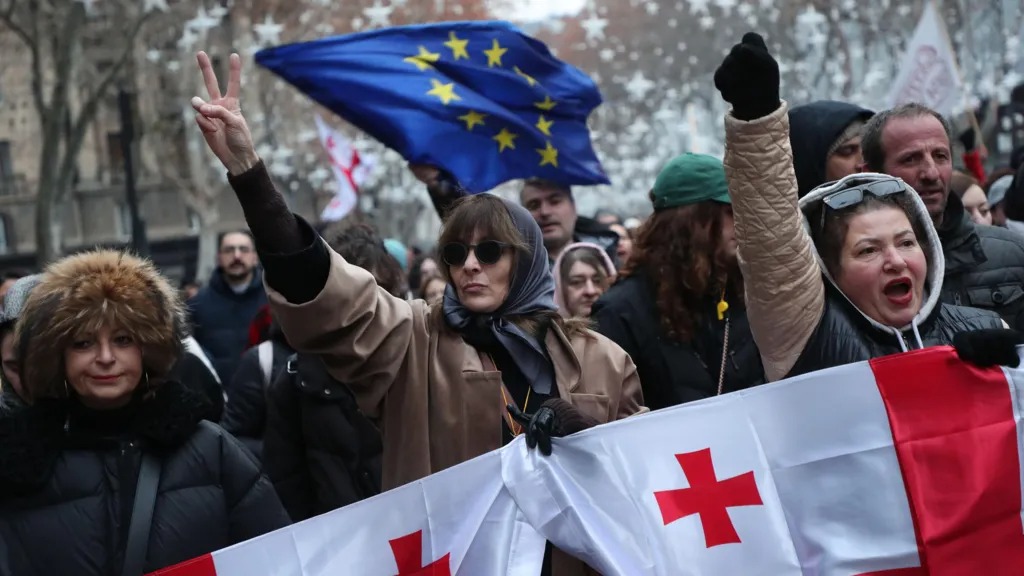
Georgia’s Political Tensions: A Closer Look
Protests in Georgia have reached a tipping point, as thousands of demonstrators in Tbilisi form a human chain ahead of a major political showdown. The controversy centers on Mikheil Kavelashvili, set to be inaugurated as the country’s new president. Outgoing President Salome Zourabichvili, however, has refused to step down, calling the election process illegitimate.
The Crisis Sparked by Georgian Dream
Protests in Georgia intensified after the ruling party, Georgian Dream, faced allegations of electoral fraud in the October parliamentary elections. The opposition has boycotted parliament, rejecting Kavelashvili’s presidency outright. These ongoing disputes have escalated tensions in the nation’s political landscape.
Why Thousands Are Protesting in Tbilisi
Demonstrators in Georgia are calling for adherence to democratic values and alignment with European Union goals. Georgian Dream’s policies, however, indicate a drift toward authoritarianism, with laws targeting media and NGOs. The decision to delay EU accession talks until 2028 further fueled anger, leading to protests in Tbilisi.
The Role of Georgian Dream in the Showdown
Under Georgian Dream, the country has taken steps criticized as pro-Russian. Former Prime Minister Bidzina Ivanishvili, the party’s founder, was recently sanctioned by the US. This aligns with claims that the party undermines Georgia’s EU and NATO aspirations.
EU Aspirations vs. Russian Influence
Georgia’s path to the EU remains a core demand of the protesters. Despite Georgian Dream’s stance, most citizens strongly support EU integration. Outgoing President Zourabichvili has become a vocal critic, describing recent elections as a “Russian special operation.”
What Lies Ahead for Georgia?
As this political showdown continues, Georgia’s democracy hangs in the balance. Zourabichvili’s refusal to step down could lead to a constitutional crisis, with the government threatening legal action. The international community remains focused on Georgia’s struggle for democratic stability.
For further insights, visit BBC or explore Kenkou Land.





